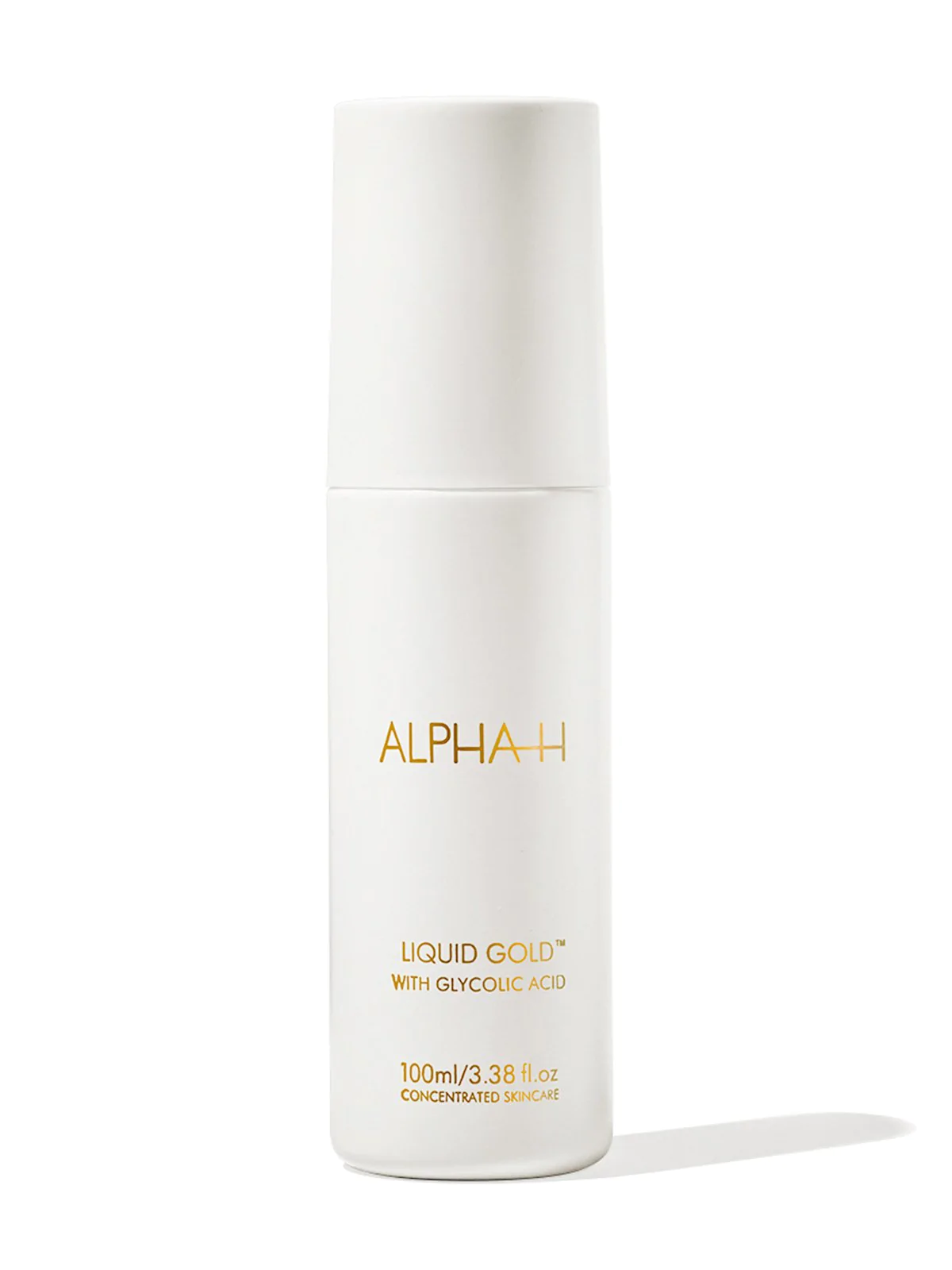The beauty industry has shown a growing interest in both alpha arbutin and azelaic acid as skincare ingredients in recent years. With a focus on skin brightening and evening-out skin tone, both ingredients have become popular choices for those looking to improve the appearance of hyperpigmentation and dark spots.
Alpha arbutin, in particular, has gained a lot of attention for its skin-brightening properties, and is now a common ingredient in many skincare products. It is often used in serums, toners, and creams, and is frequently paired with other skin-brightening ingredients like vitamin C and kojic acid.
Similarly, azelaic acid has become a popular ingredient in skincare products, especially those designed for those with acne-prone or rosacea-prone skin. It is commonly found in creams and gels and is often used in combination with other ingredients like salicylic acid and niacinamide.
As with any skincare ingredient, it’s important to do your own research and consult with a skincare professional to determine which ingredient is best for your specific needs and concerns. While both alpha arbutin and azelaic acid have been shown to be safe and effective for many people, they may not be suitable for everyone, especially those with sensitive skin or certain skin conditions.
These are two popular skincare ingredients that are often used to target issues related to skin discoloration, hyperpigmentation, and uneven skin tone. While both ingredients have their own unique properties and benefits, they also have some differences that are worth exploring. In this article, we’ll take a closer look at alpha arbutin vs. azelaic acid and how they compare.
Formulation and Concentration
Alpha Arbutin and Azelaic acid can take on a variety of formulations in topical skincare solutions. Below is the breakdown of formulations:
Concentration: Alpha Arbutin and Azelaic acid can be found in skincare products at varying concentrations. In most cases, a concentration of 1-2 percent alpha arbutin or 10-20 percent azelaic acid is used.
pH: Alpha Arbutin and Azelaic acid’s stability and efficacy can be influenced by the skin care product’s pH. When the pH is between 4.5 and 5.5, alpha arbutin is at its most stable, whereas the optimal range for azelaic acid is between 4.0 and 5.0.
Form: Serums, creams, toners, and masks are just some of the forms in which Alpha Arbutin and Azelaic acid can be produced. If the product is in a different form, the active component might not be capable of penetrating the skin as deeply or as quickly.
Typical Formulations: Alpha Arbutin and Azelaic acid may be found in skin care products, however, they may also contain additional substances that may alter their effectiveness and overall effect on the skin. Certain formulations, for instance, may combine Azelaic acid with other skin-lightening agents like salicylic acid or niacinamide, or contain substances like alpha arbutin to boost the effectiveness of the latter.
Delivery method: Some skin care products use a specific delivery system to help the active component penetrate the skin more deeply. Certain products, for instance, may use liposomal technology or encapsulated retinol to improve the distribution of alpha arbutin or azelaic acid.
Alpha Arbutin and Azelaic acid can have widely varying formulations from one product and brand to the next. To choose a product that works for your skin type and addresses your issues, it is important to read the label and see what ingredients are included.
Get your skin in better shape with alpha arbutin!
Alpha arbutin is a naturally derived compound that is commonly used in skincare products for its skin-brightening properties. It is a type of hydroquinone derivative and is derived from the leaves of the bearberry plant, as well as other plants such as cranberries, blueberries, and wheat. Alpha arbutin works by inhibiting the production of melanin in the skin, which can help to reduce the appearance of dark spots, hyperpigmentation, and uneven skin tone.
Popular Products that use Alpha arbutin:
1. The Ordinary Alpha Arbutin 2% + HA: This serum from The Ordinary is a cult favorite among skincare enthusiasts, and contains a high concentration of alpha arbutin to target hyperpigmentation and dark spots.
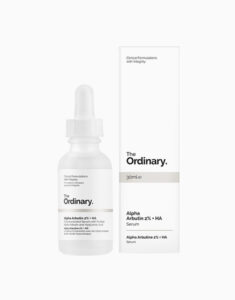
2. Paula’s Choice 10% Azelaic Acid Booster: While this product contains azelaic acid as its main ingredient, it also contains a small amount of alpha arbutin to enhance its brightening properties.
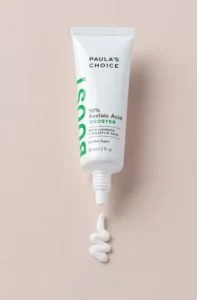
3. Kiehl’s Clearly Corrective Dark Spot Solution: This serum from Kiehl’s contains a blend of ingredients, including vitamin C and white birch extract, to help brighten the skin and reduce the appearance of dark spots. Alpha arbutin is also included in the formula to enhance its effectiveness.
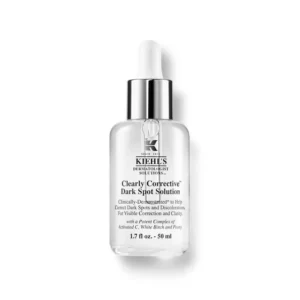
4. Cosrx Triple C Lightning Liquid: This popular serum from Cosrx contains a high concentration of vitamin C, as well as alpha arbutin, to brighten and even out the skin tone.
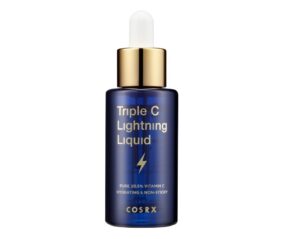
5. Alpha-H Liquid Gold: This exfoliating toner from Alpha-H contains glycolic acid to help resurface the skin, as well as alpha arbutin to target hyperpigmentation and dark spots.
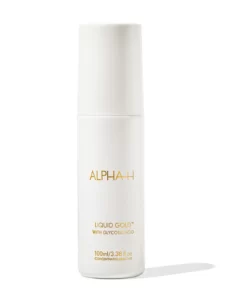
Say bye to dull skin and wave goodbye to blemishes with Azelaic Acid!
Azelaic acid, on the other hand, is a dicarboxylic acid that is found naturally in wheat, barley, and rye. It is commonly used in skincare products to target acne and rosacea, as well as hyperpigmentation and uneven skin tone. Azelaic acid works by reducing inflammation and inhibiting the growth of bacteria on the skin, which can help to improve the overall texture and appearance of the skin.
When all that is said and done lets get to the nitty gritty and see who comes out on top in this bout for the title of better ingredient for skin betterment.
Popular Products that use Alpha arbutin:
1. The Ordinary Azelaic Acid Suspension 10%: This cream from The Ordinary contains a high concentration of azelaic acid to help reduce the appearance of blemishes and brighten the skin tone.
2. Paula’s Choice 10% Azelaic Acid Booster: This popular booster from Paula’s Choice contains a high concentration of azelaic acid to help reduce redness and inflammation, as well as improve skin tone and texture.
3. Garden of Wisdom Azelaic Acid Serum 10%: This serum from Garden of Wisdom contains a high concentration of azelaic acid to help reduce the appearance of hyperpigmentation and blemishes, as well as improve skin texture and clarity.
4. Cos De Baha Azelaic Acid 10% Serum: This serum from Cos De Baha contains a high concentration of azelaic acid to help reduce the appearance of hyperpigmentation and blemishes, as well as improve overall skin texture and tone.
5. SkinCeuticals Metacell Renewal B3: This moisturizer from SkinCeuticals contains a blend of niacinamide, glycerin, and azelaic acid to help improve the appearance of fine lines, wrinkles, and dark spots.
Skin Types and Conditions
Finding the right skincare products for your skin requires knowing your skin type and whether or not you have any special skin concerns. This is due to the fact that various skin conditions and kinds have distinct needs and responses to certain ingredients.
Alpha-arbutin:
- Hyperpigmentation – As it blocks melanin formation in the skin, alpha arbutin is frequently used to treat hyperpigmentation and other forms of discoloration.
- Dry or sensitive skin – Alpha Arbutin is a mild and non-irritating substance, making it suitable for use even by persons with dry or sensitive skin.
- Anti-Aging – There is some evidence that alpha arbutin can help reduce the appearance of fine lines and wrinkles, making it a promising anti-aging treatment.
Azelaic Acid:
- Skin prone to acne – Azelaic acid’s anti-inflammatory and antibacterial characteristics make it a good treatment for acne and a means of calming redness and inflammation.
- Rosacea – Azelaic acid’s anti-inflammatory and anti-inflammatory properties make it a promising treatment for a variety of skin conditions, including rosacea.
- Oily skin – Those who tend to have oily skin might benefit from using azelaic acid since it helps keep sebum levels in check.
Keep in mind that the results you see from using Alpha Arbutin or Azelaic acid may differ from person to person, despite the fact that these substances are suitable for a broad variety of skin types and conditions. If you have any questions or concerns about utilizing a product that contains these components, you should always conduct a patch test beforehand.
Mechanism of Action
Alpha arbutin works by inhibiting the production of melanin in the skin, which can help to reduce the appearance of dark spots, hyperpigmentation, and uneven skin tone. On the other hand, azelaic acid reduces the production of melanin by inhibiting the activity of tyrosinase, an enzyme that plays a key role in the production of melanin. Azelaic acid also has anti-inflammatory properties, making it effective for targeting acne and rosacea.
Safety:
Alpha arbutin is a safer option than azelaic acid, especially for those with sensitive skin. Alpha arbutin is generally well-tolerated by most skin types, whereas azelaic acid can sometimes cause skin irritation and dryness. However, both ingredients are generally safe for most people to use when used as directed.
Efficacy:
Both alpha arbutin and azelaic acid have been shown to be effective at reducing hyperpigmentation and improving overall skin tone. However, studies have shown that azelaic acid may be more effective at treating acne and rosacea, while alpha arbutin is more effective at treating hyperpigmentation and age spots.
Formulation:
Alpha arbutin is often formulated in serums and creams, while azelaic acid is typically found in creams and gels. Both ingredients can be used in conjunction with other skincare products, including vitamin C, retinoids, and sunscreen.
Side Effects:
Alpha arbutin is generally well-tolerated and has few side effects, but some people may experience mild irritation or allergic reactions. Azelaic acid can sometimes cause skin irritation, redness, and dryness, especially if used in high concentrations or if the skin is already sensitive or compromised.
In addition to the points already discussed, it’s worth noting that both alpha arbutin and azelaic acid can be used to improve the overall texture and appearance of the skin. Alpha arbutin is known for its moisturizing properties and can help to plump and hydrate the skin, while azelaic acid can help to reduce the appearance of fine lines and wrinkles by promoting collagen production.
It’s also important to note that while both ingredients can be effective for reducing hyperpigmentation, they may not be suitable for all types of hyperpigmentation. For example, post-inflammatory hyperpigmentation caused by acne may respond well to both alpha arbutin and azelaic acid, but deeper forms of hyperpigmentation, such as melasma, may require more aggressive treatments.
Both alpha arbutin and azelaic acid are effective ingredients for reducing hyperpigmentation and improving overall skin tone. However, they work in slightly different ways and have their own unique benefits. Alpha arbutin is generally considered to be a safer option and is effective for treating hyperpigmentation, while azelaic acid is more effective at treating acne and rosacea. Ultimately, the choice between these two ingredients depends on your specific skincare needs and concerns, as well as your skin type and sensitivity. It’s always a good idea to consult with a skincare professional to determine which ingredient or combination of ingredients is best for your skin.
Ultimately, the choice between alpha arbutin and azelaic acid depends on your specific skin care needs and concerns. While both ingredients are generally safe and effective, it’s always a good idea to consult with a skincare professional to determine the best course of treatment for your skin type and condition.

